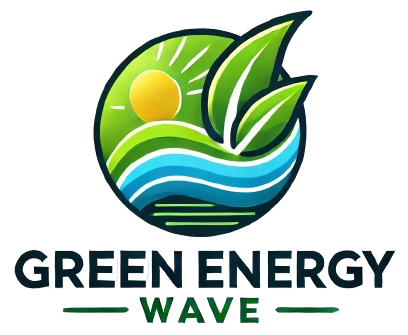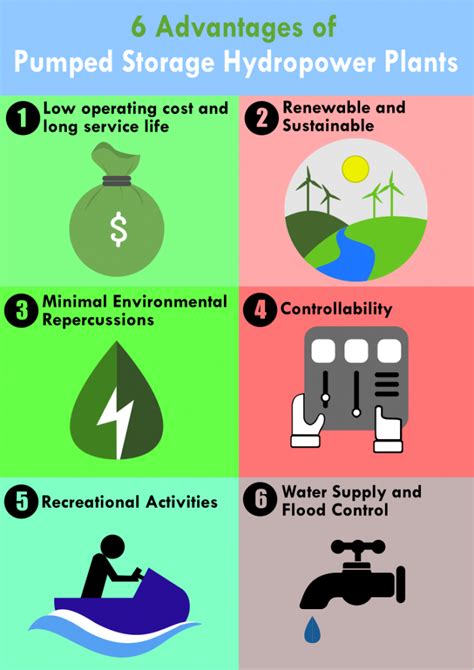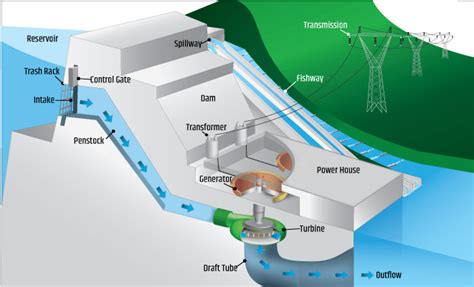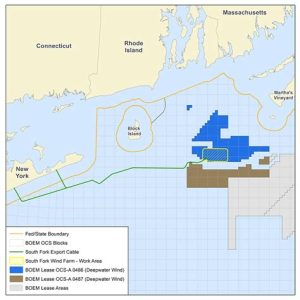Discover the advantages of hydropower for clean energy, its economic benefits, role in carbon reduction, and challenges for sustainable development.Hydropower stands as a beacon of sustainable energy, harnessing the natural flow of water to generate electricity while minimizing environmental impact. As we face mounting challenges related to climate change and energy sustainability, understanding the myriad benefits of hydropower becomes increasingly vital. From its role in providing clean energy and reducing carbon emissions to its economic advantages for local communities, hydropower presents a multifaceted solution to our energy needs. This article delves into the numerous advantages of hydropower, explores its critical contributions to water management and flood control, and discusses the present challenges and future prospects within the hydropower sector. Join us as we uncover why hydropower is not only a key player in the renewable energy mix but also a crucial component of a sustainable energy future.
All The Advantages Of Using Hydropower For Clean Energy
Hydropower stands out as one of the most efficient and reliable sources of renewable energy available today. By harnessing the natural flow of water, it generates electricity without producing harmful emissions. Here are some of the key advantages of using hydropower for clean energy:
Overall, the integration of hydropower into the energy mix not only fosters a cleaner environment but also supports economic growth and community sustainability. As the world moves towards greener energy solutions, the role of hydropower in providing clean energy becomes increasingly significant.
How Hydropower Contributes To Reducing Carbon Emissions
One of the most significant contributions of hydropower to our environment is its role in reducing carbon emissions. Unlike fossil fuels, hydropower generation does not produce greenhouse gases during operation, making it a clean energy source. This feature supports the global efforts to combat climate change and achieve a sustainable future.
The production of all the power from hydropower facilities relies on the gravitational force of falling water, which converts kinetic energy into electricity. This process generates minimal emissions compared to traditional energy production methods, such as coal and natural gas, which release substantial amounts of carbon dioxide (CO2) and other pollutants.
Moreover, hydropower initiatives can also contribute to a reduction in emissions through additional benefits:
- Substitution effect: By replacing fossil fuel-based power plants with hydropower facilities, regions can significantly decrease their overall carbon footprint.
- Supporting infrastructure: Hydropower plants can facilitate the integration of other renewable energy sources, such as solar and wind, into the power grid, thus further reducing reliance on fossil fuels.
- Carbon sequestration: Healthy ecosystems created around hydropower projects can capture and store carbon, enhancing the overall environmental benefit.
Hydropower stands as a vital player in the renewable energy sector, offering a scalable solution to mitigate carbon emissions. By leveraging all the advantages of this clean energy source, we can move closer to a sustainable energy future while addressing climate change challenges efficiently.
Economic Benefits Of Hydropower For Communities And Regions
Hydropower offers numerous economic advantages that significantly impact communities and regions. By harnessing the power of flowing water, hydropower plants create job opportunities, encourage local development, and provide a reliable energy source, all contributing to economic growth.
One of the most notable economic benefits of hydropower is the job creation it fosters. Hydropower projects require a diverse range of workers for construction, maintenance, and operation. This includes engineers, technicians, and construction workers, generating employment opportunities that can stimulate local economies.
Furthermore, the establishment of hydropower plants often leads to increased infrastructure development in nearby areas. This can include improved roads, bridges, and communication networks, which can facilitate easier access to markets and resources for local businesses, promoting further economic activity.
Additionally, all the energy produced from hydropower contributes to lowering energy costs for consumers and businesses. By providing a stable and possibly lower-cost energy option, communities can save on energy expenses, directing those funds towards other local needs and services.
Moreover, hydropower contributes to increased tax revenues for local and regional governments. These funds can be reinvested into community projects, such as education, healthcare, and public safety, enhancing the quality of life for residents.
The reliability of hydropower as a renewable energy source fosters a stable environment for attracting new businesses and investments. A community powered by reliable and sustainable energy sources is often seen as more attractive for industries, ultimately leading to broader economic development.
The economic benefits of hydropower extend beyond energy production, creating diverse job opportunities, stimulating infrastructure development, lowering energy costs, increasing tax revenues, and promoting local economic growth.
How Hydropower Supports Water Management And Flood Control
Hydropower plays a crucial role in effective water management and flood control, addressing the needs of both communities and the environment. Here are the primary ways that hydropower contributes to these essential functions:
- Regulating River Flow: Hydropower plants help manage the flow of rivers by storing water in reservoirs. This ability to release water gradually minimizes the risk of downstream flooding during heavy rainfall.
- Flood Mitigation: By controlling water levels in reservoirs, hydropower facilities can act as flood control systems. They can strategically release water to reduce the impact of potential floods following unexpected storms or snowmelt.
- Water Supply: Hydropower reservoirs serve not only as energy sources but also as key components of regional water supply systems, ensuring a consistent water supply for agriculture, drinking, and industrial uses.
- Ecosystem Support: Proper management of water levels through hydropower can also aid in the preservation of aquatic ecosystems by maintaining suitable habitats for fish and other species.
Overall, the integration of hydropower into water management strategies provides vital benefits for both society and the environment, making it a sustainable solution for managing water resources and mitigating flood risks.
The Role Of Hydropower In Renewable Energy Mix
Hydropower plays a pivotal role in the renewable energy mix, serving as one of the most mature and reliable forms of clean energy production available today. As countries strive to diversify their energy sources and transition towards sustainable solutions, hydropower stands out for several reasons.
Firstly, hydropower plants can generate electricity continuously, providing a stable and predictable energy source, which is essential for balancing the intermittent nature of other renewable sources such as solar and wind. This characteristic helps to ensure a consistent power supply, making hydropower an essential ally in achieving energy security.
Additionally, hydropower is highly efficient compared to other renewable energy technologies. With efficiency rates commonly exceeding 90%, it is one of the most effective ways to convert natural kinetic energy from flowing water into usable electricity. This efficiency significantly contributes to reducing dependence on fossil fuels and lowers greenhouse gas emissions.
Moreover, as countries increasingly integrate various renewable energy sources into their grids, hydropower serves as a valuable storage solution. Pumped storage hydropower facilities can store excess energy generated during peak production times and release it back into the grid during periods of high demand or low renewable output. This capability enhances grid resilience and promotes a more reliable energy landscape.
The role of hydropower extends beyond just electricity generation; it also supports other sectors, including agriculture and transportation. By managing water resources effectively, hydropower can contribute to irrigation and the navigation of rivers, playing an integral part in local economies.
Hydropower is a fundamental component of the renewable energy mix, providing stability, efficiency, and additional benefits that support a sustainable and robust energy future.
All The Challenges In Developing Hydropower Projects
While hydropower presents numerous advantages, several significant challenges must be addressed in the process of developing hydropower projects. These challenges can impact not only the feasibility but also the environmental sustainability of such initiatives.
Regulatory Hurdles: One major challenge is navigating the regulatory landscape. Hydropower projects often require extensive environmental assessments and compliance with local, national, and international regulations. This can lead to project delays and increased costs.
Environmental Concerns: The ecological impact of damming rivers can be substantial. Changes in water flow can disrupt local ecosystems, affect fish migration patterns, and lead to habitat loss. Balancing energy generation with environmental protection is a crucial challenge that developers face.
Economic Viability: The upfront costs associated with constructing hydropower facilities can be extremely high, making it essential to ensure economic viability over the project’s lifespan. Additionally, fluctuating energy prices can affect long-term revenue expectations.
Technological Limitations: Technological advancements are necessary to maximize efficiency and minimize environmental impact. Outdated technology can hinder the development of new projects and the repowering of existing ones, complicating efforts to optimize energy production.
Community Opposition: Local communities can often be opposed to hydropower projects, especially if they feel their land, water supply, or cultural heritage is at risk. Engaging these communities and addressing their concerns is critical for project acceptance and success.
Climate Change: The effects of climate change on water availability and flow patterns can pose significant risks to hydropower’s reliability. Developing strategies to manage these risks is crucial for ensuring that hydropower remains a viable energy source in different climatic conditions.
Addressing these challenges requires a coordinated effort among policymakers, developers, and communities to ensure that the growth of hydropower as a clean energy source is both sustainable and beneficial for all stakeholders involved.
Future Prospects Of Hydropower In Sustainable Energy Solutions
As the world continues to seek sustainable energy solutions to mitigate climate change and promote environmental protection, hydropower is poised to play a critical role. The future prospects of hydropower extend beyond its current applications, reflecting advancements in technology and innovative practices. Here are some key factors that will shape the future of hydropower:
- Technological Advancements: Innovations in turbine design, generator efficiency, and data analytics will enhance the performance and output of hydropower plants, making them more competitive with other energy sources.
- Small-Scale and Modular Developments: The trend towards smaller, decentralized hydropower systems allows for increased accessibility and reduced environmental impacts. These systems can be integrated into local energy grids, promoting community involvement in energy management.
- Environmental Sustainability: With enhanced focus on eco-friendly designs, future hydropower projects incorporate fish passage systems and sediment management solutions to minimize environmental disruption, supporting biodiversity.
- Integration with Other Renewables: Hydropower can complement solar and wind energy, serving as a reliable backup during periods of low generation from those sources, thus ensuring a stable and robust energy supply.
- Global Investment Trends: Increasing investments in renewable energy infrastructure enhance the viability of hydropower projects. Governments and private entities are recognizing the economic potential of hydropower as a sustainable energy source.
In addition to these developments, hydropower is also likely to benefit from supportive policies and international cooperation aimed at reducing carbon footprints. As the recognition of its advantages grows, hydropower can emerge as a cornerstone of a sustainable energy future.
| Key Factors | Impact on Hydropower |
|---|---|
| Technological Advancements | Improved efficiency and reliability |
| Small-Scale Developments | Increased accessibility and local energy generation |
| Environmental Sustainability | Biodiversity preservation and eco-friendly practices |
| Integration with Renewables | Enhanced grid stability |
| Global Investment Trends | Increased funding for sustainable projects |
The future prospects of hydropower in sustainable energy solutions highlight its significant potential to contribute to a cleaner and more sustainable energy landscape, addressing both present and future energy needs.
Frequently Asked Questions
Hydropower is a renewable energy source that harnesses the energy of flowing or falling water to produce electricity.Hydropower significantly reduces greenhouse gas emissions compared to fossil fuels, helps in conserving water, and supports biodiversity by maintaining water levels.Hydropower provides a reliable and consistent source of energy, reducing dependence on imported fuels and enhancing national energy security.Investment in hydropower can create jobs, stimulate local economies, and provide long-term cost savings through low operational costs and maintenance.Yes, hydropower facilities can quickly adjust output to meet demand fluctuations, thereby providing grid stability and reliability.Reservoirs created by hydropower plants can help manage water flow and reduce the risk of floods in nearby communities.While hydropower has many benefits, it can also have downsides such as habitat disruption, potential impacts on fish migration, and the risk of dam failures.











